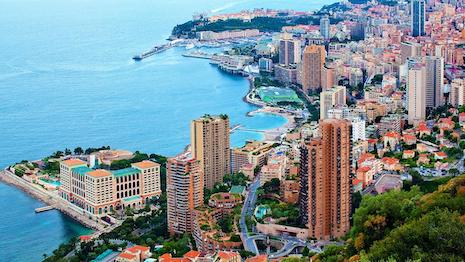By Lorre White
The luxury business is divided into two categories based on the price point of the product or service.
Low-price point luxuries such as fashion, accessories, cosmetics and skincare spas rely on the middle class for 80 percent of their sales.
High-price point luxuries such as yachts and private jets have an exclusive ultra-high-net-worth (UHNW) clientele.
The middle class can save $5,000 for a Chanel purse, but never skip enough lunches out to buy a $230 million dollar yacht.
There is a third subcategory that, although can be in the luxury category, has some very different rules. That is real estate.
Making a point
Real estate can be luxury and cannot be luxury. What price point it becomes luxury depends on the location.
A million-dollar home in some places would buy you land and a large house and in other places a one-bedroom apartment on a less desirable street with bad views. There is not a universal standard that a house of a certain size has a set value.
New York is considered to have high real estate prices. However, it is 61 percent lower than Monaco’s rental properties as of 2019, and that gap has grown wider as of 2021.
According to Dow Jones’ Mansion Global, in 2019 Monaco remains the world’s most expensive prime residential market, with a typical home costing €48,800 per square meter ($5,000 per square foot), a price that is double that of Paris and London.
The average prime residential values in Monaco are now 237 percent higher than Paris, 194 percent higher than London, and 10 percent higher than Hong Kong. Please note these are just the average real estate, not the luxury real estate prices.
The land can have more value than the house.
School of thought
There is invisible value in a home by what school system it belongs in, or zoning for taxes and utilities.
Schools have great value to parents, but not to people not having kids, or parents whose kids are grown.
The value of the same object varies from person to person.
When you need to live somewhere else you cannot take the house, view and school systems with you.
A person only wants to buy a property if he or she needs to live in that area, or wants to visit there regularly, namely via a second home such as a beach or a ski house.
If the single greatest structure ever built by mankind in the history of the world was in Detroit, would you just randomly live there?
Outside of personal use, real estate can be used as an investment – but then that takes it out of the luxury confines for the reason of purchase. One can make great money being a slumlord.
Consumers put more money into their home than most anything else they own. To some a million dollars is a fortune and to others that is just crew and docking fees for their yacht annually.
If I want to move or need to move because of work or some other constraint like family obligations, I can take my exotic cars with me, my art can be packed up, my private jet is constantly being moved, so is my yacht.
My low price-point luxuries such as my clothes, cosmetics, wines and shoes can all come with me – but my physical house cannot unless it is a mobile home, which is not that luxurious.
Even if at enormous cost, the house was to be broken down, moved piece by piece and reassembled, it would no longer have the same vistas or the same school zones. Thus, the evaluation of real estate differs from product and services marketing and sales.
Relatively speaking
A million dollars buys a vastly different house and property depending on where. Because of this, luxury real estate is a subsection of the luxury industry requiring some of the same luxury marketing, yet also not following all the same governances.
Here is an example of the difference just within the east coast of the United States.
A house in West Virginia with the asking price of $980,000 in Buffalo, with 11,000 square feet, nine bathrooms, eight bedrooms, on 30 acres near Kanawha River, offers access to horse trails, hunting and fishing. It also has a billiards room and an indoor pool.
In Wellington, a more country area in Florida $1.2 million buys a five-bedroom, 4.5 baths in 4,891 square feet.
In Palm Beach, just next to Wellington, the most expensive house goes for $115 million.
In New York, the $1 million price point is where the mansion tax kicks in –although what you can buy for a million in the city is far from a mansion. In a nice section of town, that may be a studio or small one-bedroom apartment.
A brand-new Bugatti will have relatively the same price tag anywhere, as will a Gulf 650S, or a Ferretti yacht.
I have seen luxury real estate people try to move into the marketing of other luxury goods and services, and vice versa, and fail because of this difference.
When hiring personnel, make sure that you get someone that meets your needs.
Indeed, it is just like a company that specializes in marketing cosmetics, food items and fashion brands that sells predominantly to the middle classes would need a different skill set than companies that market $2.5 million cars, $65 million private jets and $200 million superyachts.
A $900 pair of Chanel sunglasses and a $200 million mega-yacht both require luxury marketing, but they have very different strategies and very different consumers.
SOMEONE WHO IS in luxury real estate needs specific training unique to this subcategory, and to the specific knowledge of a particular region or community.
That skill often does not translate into making them good at marketing other luxuries that behave very differently and more globally.
For all the reasons listed above and because the motivation for purchase is so vastly different – often need as opposed to desire such as a yacht – is why luxury real estate industry events do not serve to train other luxury marketing professionals, as well as the other way around. There are some very strong differentiators that greatly affect how it is marketed.
 Lorre White
Lorre White
Lorre White is founder president/CEO of White Light Consulting, a luxury marketing consultancy focused on the ultra-high-net-worth market. Reach her at lorre@whitelightconsulting.net.
{"ct":"+ukaiRtqqfbJ0WuCTrP1srzTv4WNs+O0v5zpan5naLp\/b6E3ZxftyPygK7Zutq1XDNSOoPjmV1mGNngcbJpsGxS3Bgltg+S0fJk2yslSbIArIFskxvuorI1p+OVTRGrnmqe0afuleFftuGl3+OKbl5MdzpYdq+YNYsVs5BeBzL9cTMqM93cBZvPfDo+fTl6aMAJ+GDHQ9Ry6Y346s9BoaEptEPrgx\/tQRtXNl77ZEqTRSd14rb4QO5yQzkgEPC9\/NLUPJz7GV24A3S8N\/wV\/iVMr8XOAxZFn5JcnzbLzL0ijfEzNoyO+Yd82YHEOeZzgQneXANW1K76cfDx0YOPoClepOe\/oy\/6UBzTz2qmQaXtgr2Vx4FBzufgdQ2xoTOozCqPRJzLFw1eXLFHZ8YGk6O9xONjYVLcbcnkrhHyZ6SovynvJj3NoZ7z\/SOYPLHYqrqft8lYupF2d1mBRZpWCrQXRp1SmUdSBfUKfl2Ndhxx+OsC7iWipJ2WUJvilQQZOIJ8SU8zRDLH6w\/prKdpmxNjThFf0doOA+axNjAb\/7ORKesoID1eILQ4ThSo9G0Mpd1lBiK1jY\/1vz5goWCcieff9inxlBSfBDERVlFamK9D0hNJKH8Mto4l2sQQqrTh96VxfcWnxzubCtcYgcgG2etQUs6jBC9Iixk0HXJmHxAsvfKGxjvv3QUXUnRNNvHMWoHVAr2iqYwQ2MRbU4ReFkLuhteS0krtbl1UUbxa5bdfYIeCLK33dkHScDyPsnBd2yfoMVLT9tT6VsihyfUSvtsct3WKt7h8RDlFa7lrTRBGO+pMzhR5l6pTc+uFlmcKkANvGKaOdeT+4HTztU1GiUpuQ4aEJ42H7oJJf2WelkKlxiohujjM4GfNgiihMAitwP4Mr5FL6Z6Nq6uC\/fWu77su+f4yNPCE7o6PyTRlMyzhoKE72reHNnoOjQmDSsZy9EXWJ4gDLhidaweBKgC7y5kBd9un6rwQ4mC2LJmxO0ztLAZiclnNMq9UpjjA+EtFFcuEjDfxpSMnaDuoVvADxNHQzBCFOV7anOZIhkEsfMcSjXYhrr6Gnx4Q1M9RYIHR994Tm5YfmHIDM6wdtSZYVkgtHRbvByVevFnDneX2jy73\/gR\/\/3WBHtkx3sXz2jc+blKmpsvFIs1+oSWmFpm+bCfngs3kmIGOGqVvp9BrfWnDUxEJdjbw1EC3X4IVm8qwVUHtRmpAS5v1+kiYuE5mSIryJEe3iXd55c1d3ebiHtJuoUtnv5eC+x6AZPpU2O6HaZGCIfscv\/plF3\/pVYwOFYlZMX4A1Pw\/gtLAcA4tyXkCMmgdWcxgwKlD0lPYF3BBfCyb76yv\/xYlDWcnCOr+0t43Ud6rrJAj\/nFoy8M3URaDG7umvrgfMvdS0BWxoB6Blz64ZDcOO18gfvRR9Ren\/GTPDnfzzhnhWozUIMZrOuFMf7UNGWjd\/ZRcfXiEWgGTxEfp\/kPFWZNdZkUcQDoi2Zwjn55J4sxVOuDXJ4mf1d85InboBQlOMLcGwV6KTzOtmYs57upocBGPgGnzbiRmZz460tys5Vf0rGA+3ZnUltCHyv0RBOL2RQI8FIap7iwZyvKy0i5wSYOINsRwIbVDTNVYuvcgRXqAuk6CXq4iaSF2p75wc6Dc47BapDcc\/qAWVdUmgHCJgVzakGsA14ttiKkzKDpvUlHSdrZ3GbjwP4YyiQkL6JnU0mhqEwCG9ocAlrP3hriGfM7E42N2r2Ncu531F0pwDMX8I9dzZTWaYgJiK1r+eUR1eF0KCjp\/QoZKBV3qytnR9unQPRU3HLe7tFER0FYag7e56+5osxjszm8GkuYeT0crDYxf2MO5eEUOsq1+hKpR8mm7S37dClivxngHwRECCiLMDYKfZs8ltWROprtFoC5Xfpx35gVKw2Dfgor3V76kGi5d+C9qcVpKsUXqOKjBNd55FaeMSLFy3VaaxFn7f5ISYuqoYCc\/9Rxp\/N55ck+H4I\/VLIwyAcJHkHesEVI7wca6DifGIZmaq4t3CoaS9snG0EdXpnCMflS2ofg8IonGq4vRcePzHq6Lnc8x+6XRZ90TtMmVa\/Pse2XB9j3N+4cI+LKTfNHncSg01CoknpPLeTeZf1QcDYo4kKeXIjUhCGiJA1dPRjdRqRFclxSTNjNkwDxWcTbnNDu9CvVjSibQ+uYdxlo1A8eFaoYJggFYtwCTi+UbnDF42SBYzA4FlgplLjskX9D7qMm9V2QfIbbafZlOSoI2GYyg3k3YsGARm47xoPLkjgjgkoCled0FLo+Z48sdVKK3kJJyLu9NO01VCL1GpJu9quVu0k36s4gOLCL0o6YWOvuDOdrwA6fgALBfwEo1q+mEKje+TG73+2nJ6XhFYuNdCjKP8RNxYEn+wOSzikbX+4AHIBGFawP691W3X2T77lflUoEEHE3drsZ7bxb03rOKtnLikTGEcul6fCq\/csEMn+2CpbNgRrhksOi2jRodC64\/YGSCvIZYyvt9ZXSSwNTGX8CZwEiXnYcsiGUYXEKoj+NHHo1bX2WfL9jveXyhnYF4HoauIvVAmZnAgjxBYPw5NhM+Pai15mG0CJtUxIsIq0Knqv80E\/GCbc\/MJatrS29oTt64o+ippjMwc1X912c5miV2nk2TOCzOcd72Hbc3pvnvVtNeVB\/xgkV7KpNepa1Ek3lpibeJv\/Q09+ACcC6z9kqm0D7DJqkNOB0V5OXUhoUhQRDTz3sHvWFt9PJKGjvEUrAK7nWS22zLGtS4M93HqoX\/4VQScMIvHN7v5PeL12MC5PO7ZvpT4nKBfcYZTHK6TZ+xZwacfgz3\/gNHvPSiEfMlZfv4mkxuA8rG44ot9AldEeDO+XwAVrwoAur5hC0qVLqi1dJlUhg3zk15RBpGl18W2cUh9uyYC0j20Fe+RREj4YZQq3bLvmBzAoDdkjOiskS+1srC12cv1igzq6H\/x1dUH9mXDaBJ6ARbMtw7GvIi+f6S6reZcuxgIbYQ99G\/lYbJCqurrmQNLbqBO4a7XYDoZUl3yusJluKpuZlNKF0jyJZUVSIb1zZot6EN9ZTU\/B3795npUTOWSABh1iaKD00noX8hD0YJOUukGRf0e3n7Kij+h1\/xmgUAlU9jeG7\/+eQ0z\/\/a3KutRBIQFzao+iEUMTI4wrvKkKVJjr6nI3NvdHiucm8pxRMUvEuQoVfHTLTKSqpriRSbi1QJIrpZRJICoitTP+GU+QlJCUYPKEjE8BIfsC6q6gTCXJXMlPQ9MU52Cts\/MUEROym66mGTLUkIoSGLu6P24f0MUR0MAL+irxqirxxrVhYyoldX3oLnwed9EC1xytrM1jioKPg\/L73dM+GbTOX8AawYzuCa2jKY6uDwzUylFSfiYR8D9JabFlHa5BCxCxOsWNVw2w5mNvjCKanwNE4rmtDFcdQw54B3JzfyXioRpDVMFqGD6kq33bzVyA1V0qA9rfHonMWlrAa\/Qh3ksDZOfz9aXdRQJFu8KJGpSSEJGEtGHIuNSYQPSaKSsd82OE6X9L45PPBgL1y6ObcSRW19+\/Zt\/4NbwPaIsIbqCFaHwBWQz12iBb4yxIJ1h8wCPhokfcr47jS7sBlnAGAvlhE\/I7RP8FPQ0rZ1HmFYiBpKw0bCw0Y2jbnBsS0t+v\/xVdjuVdqiCCjq7RC1MbcXmjdlG3tu5eM6ic8kbK6G6LxmbBiDWiuOqBJUMDPJ52H2O6twH9J879QXQohqtPozYAvDI1BvulkZjVVuFULFFl4w3+IZkiOKzlTWnn+oT+q1nVUe7OV7FjpYqZdukVgXRP+uS0MowM+IC0DIDQMAgwxe9GErttDV3Y9uL1EtSqj3wwpSg2GbLuEizENqISyKHcpHXuwJA+CVcWnTt0zXfV0O7Zgu6vsI\/rEcMOuCdcsqmfsMkkzDNjX7BDCKiKxuLXjirrOq2ph8C1ZEy7FGiFQpnMK6e8WSwbBfpy03Sn4jPwT6inlV6F0JceEOq6Xw7glDr4fLE4Z2Ss\/Ww0Kg10oczBLc7V80+lPt7WbY8DRFTFG66QHyl4tw511qBwi1Uco9Jg88C1Bn8NBJTu1Nr2uv04cbA7j1w\/fd\/6sqvcQrPoUutcTCpmMjQ+89rOcq2jacXEHrN8IbpPRr4n97bJtNbiME\/fufi+cjSo5MtIpYAK\/YIsWwYAhlPnb5JhPR73KY1zWhXyYwF3qw7Rxexl\/jSKlRfxYwfxfOLjr1EmoiVvqR+aHA9\/6UqsrNtgI5KVnInAUL3LtC7UgZky0to9YxImy8gZcn8Ax00SpACeN+dZ3KcCyxlvxiyU\/yKO7BVGYdO5fE\/BgXiNTZMS3LsfW6tqC6LYXpO9z0U13DzgoZR4Uj70+BtKldWdnfuALgh1\/h6ISD0zzkMyGnaWjLEI+dSk1qYYuW6keSqxS1SSMCQDL+VCpC50b97do1i1WcWw4IgWlBYZKRSq5PeNIGIlDUyQbFQOlNhrAYBI5rDLkRS3TVXQbUnIkLWG7HpxW3+pEU6DruOSqDm5nBuJ8GehDf62AJpv+DyNowi3+pkmwECijP2GkywFBxsL85LIxGfhmtqqhqqpD5KYmnSXNr5COhQMTf\/2K\/bC4MTrrPTcO7vD2y4+AIUOvxVOF\/HD7hRsu8I\/QEm1zyN6SzNNi72WoZso5V4kIkjqQcxyuynNvYov8XMX+FyhSFpLXjn7DWlLOul5gY9RMyJw+oNNYBr17xwhJq1eC8Oe0bHsgXrAXa9IoMwT1Q\/ixbe3XUjUPNm2\/se\/+9TcoK9oGEkJPoeCbSWh9YMIs+GpTxPLBDuYCeQ2elGeHvV7B1TNR0XyhwJTjMkYwUopT1DTfA5vs2AqkZuBOPr6sXyFyqXrlyXo21Q6Rdx7NtlYL1xefyn7Av5t8LzJ7v546T0JWArTXkCBReVtI0+Dik1nJlhj1zMYx9fsB+\/xFLFlRXw+Obv6HzXmVXkP1qoN4vbbDaiWKiMBPkRiGeS\/WFO7wjZacYt1tse62S6B2i8Sat5NNTLfT4oAsJx4wuq\/rfCMttVSZr\/lb9wUihPFzEnnyEFeIjwOlL\/FQHg7M\/DF5d\/y5vNcBOPqhffOovZN5D9WFV0xxWtqU\/YaKux3LP2URmhtS+BTDP3kBY+pEXBSTeX84hwn5Sk\/DIMlWE\/ih3rCNVNkIJrn7tO7ccnXoVqgulu3ghJ0PxCy2JLRKzHcf\/mK80inM6g9VfhuPxfDfEUjl7I5hX1apILFvzX8+Az8FzQT6NzpT7yxzAWHWjuz8Rb8QbD0y6tQfHW95EI5LSdHWNdSPPa4x6O24TavXnsxGFnmwSgX1bmhhXRhlp3ekSrQkwZ7UeOZVRCsbG\/sPOBmAr6qvRGn1jBN2f4pGDNLJ8hIUiQi4b9u6Vv0\/Oc6lZSmfnVB17Q0aDcD6WcMyAkp4Gu8+uVpoDVtStaAX4Aml5H7RikjehCVNDjtcXijin\/NH6k7\/iqQWy5Hi2S6FHvuG+PgxHHxnHYG7b2nqkpww4hIdviMCIT+bK3pIEBSvEfT99D0AAnAPa\/iCCNusYpcy+CBFWCVzECZISCTz\/ys3siQvvplzhpP5481UNOQDT1AL1jiCJI+b5TttBPTd+7suJfYObxIMC\/PFAOczndQl\/6lR+o+WDP5slUpYXjHjPdGPkqRlN4hSqEkwfgO0FU2M8cTJQTbL0cK3jgCOYC+7+WNCCzd+nozqRdk3ewDyri51P0U4QgfyDT3pO+Ote\/YgE2VIlw3H00kvVuhVKcfIZ2gcmSc13clKtaCz02SoC7mKO2m1Alya4t9ZSj3n9wAaj+xsOW0reQtqAc6znKXJ9baE5dn+gpIGZmWfYMMcsGLewZipBAPBHKlXA1CXK6qJ25H9U8Pqn10BYOkI7eWv6PLlSB1jVILGaN84j\/drnluOdh9Gzz+bwT8zXWN\/wDQ1LnoPo+N61k14EouqLZLAGeoRfmlUYN4ARtSguqr0liYUTCizepIPN\/4bQjfC8lQuVm9StSc+q9a\/aDPnnNBDl1F0xrDMAlc7ppuWa66r81xCB\/HtYhndnM32Rsb7PE17BPYHY5l5WZq+anY1kgHW9ZWlO7X+pfCt\/zhYpMdRoMGkjWNjcp4GJCUrLbezWMCZa3xy9IaNJIPxkve5kEjMAY4oB2N776lzg2XVl0\/9Lr3jVdOef+24V\/yrzdncjBAT1\/LVsusWJAPcQ7GAYopopegHtgr0FFknWDdOVMdgvEb8PuUItE5SDdsJNZyIZ+mzwsNhxpdnQLY7b07I+VhSoUdnTo6QJDTQEKuvsHs6WZAuFfLLfgcaBqHVI2xr04ckkBs0kVhVJVyOw53oazKLhFYQ4w16sPO5LRroyru\/\/yUe7cahAEvyz+\/pM7iaRBQi42d\/LM0tziG9OknBbtnJYq37lVLBKY2Sum6y5X0iGnTKZhDXeYfrwqWXQvOVah00aeJXyBAeMEAL6zXakw7EuF4b0xbJlsCt\/Yy\/fVKoPgIhEoOkr1eVnZfijTwu7mrzQMcaLxlPXRu+1fDkxVVwNdzrdh3jAa2r6krqpzCiyHVppfx5hSptW\/6QSHQ\/oMnvDyJWHT3USGpNVxplmQUI9blvz0wqmq1z3Zl5A39drf+iQEj0o0YOSait60HXksR0NcW5mj2S6C8PkALRY6H5sVnbmMSDfvUeK2fmifV+ZK4A4p8FXNGakqauNxii6TSM+w4monWBHvcZtoFr2hAKK78XBshGmNI1ektto8i1N4Q0k8mRNf1JKgaU3ZwaDX\/pURPlGvjRD8k1ILIcC+zwI8REc4MMdXS0iebFVMksojxSGG8FJi7JVTTMWPBkjTbjlT2\/5q0giKtLiphywckV\/t4GPvl7OObkLo+dSDC2rFyYW4eDcMx+60ytFMe9\/ZM9gqJNzgtzimsiUdrM1WOf8aeLlpnt8qhTyXR4UDcnWPqHzbslB4QG95S8RtSDhOGPnGM2Fdw2X+D53IAQER8zoLeg58Vqw0qbkUIP+lYuY4YkY4N8Y3KI3IRL+8qd3kYW\/96BSMZprDQ5W26W4i9a4\/7UeYQwfVOrtWOFZxT8ScKq+zqvuOLTfFixI3WdYxpr+TJ1jobq5ZMmodITyNdc8v9ICLT+KXIvpGgCuIJa6n43SygvtgfJ9eZjM0KF0vw3EPfs7NXas7hn8ddR0w64cxkKbPhpYRH9svKhQP+W54Y2iTsGJfZO4d1K8D1ZWoGCzVMnoVdyCw1hBJZ7yWE9P0UIqdTFYhdvI56frabW1xHtbmaEDtfFqoe0QJUAtkCmgbjvIZY8tcYaVv1qjUYn5TpsDI3l3ErVBbjCE2g\/HMzb\/OjUtGrhK38eqaombUKZTrOjijLBPF2UtsfvUjsQMFkj8Td76SsEtdCFibLrIMYjEHRRWqrphKSxStk7l+HkSij3Cu\/mXxaMdJ2jaZRlYIEPy0v6w8+WBn4hTZd6NGBJacRih+kxds\/yUAPhxUcMD8ZeL43KeE1neyUw5bU3mK5DYTzzsZ6ofSVtG1yexfmLvXvOStryxG7jnbBIF1sHdbYslUHUkyXRh1jDdXEjMcZqZiZs\/1MO6Xnj7eO6IdRRymOKnENfbnd7h9ELN35wuW2TG529SKEyVNRXgL6IEueiX7Ivw2VDsF3Xu8+girODEsl3zfJpUu7z3goLT1Fz3bLsExNHIRmv7E60kgAA9QQl+FMwS9+1J4ZMo563fU9TcTY6JL08e9UqPb5hIXhP0xWlWsRO8EDfXMuAVFAZcABSML\/HdFUItS\/GzeLujEnQ41CSJ6k\/R5QZrpAknBi0yZzZmpT0r4TNTcg76cTRWgTw3GCKo3ZplZPOUiVaSvy\/VR8ZgrNpDNIL1dDuaM9Js0Pf2+cWTSmlREHSal1A\/CBAl5ZBqVVasaNXnmfufXFzwV6ASwf8M91KYl+hyS+ELZ5nSDhW9k9q0EyKg5jVqDd82XnNslJbEVY8pu\/Maw1nUHeEUQLfSQ+X7bOy7pYzlvKRdDcue3e5Su4GOrDqdbwqSRp48lEEZ5dJwx7qjYzvJBETjxo9qGMrfrLenhH1ijY7VcrKL9aX2surQxMOcWF5yxvfHIYbmcukOg11MlJjqZSu5I28AF\/WcYW8VW\/uDXgKHMZZ28fRYyHJNJgBoTxwlhjX00\/hLuwf1JWwF4TH1Dkb7jLLyORi7ZizljgZDKv50czmJUE4M8juF95otlVlzSmTAPDja9Mkt3Iif7mwDjEbgb8iLkxwV9tuFzbYwUtTc7Cb2CFRPYFW62o0kk\/qRMKBy8qV0kUAJIuo4JWB3q609Lb0NI21MoIDsLIpA3ZhBS2EoL+EXVlku6fVL8lrBK5RCpFe8kZt1O+Bn2zLRgW\/ZmjFaqre9\/A6LYNO0rSol9nFvLTieFbfLoqWkAxnaj2QoDd5b4eBaOi\/q2tKEsxKouGrqi4Hoqvv1W+piuGtxXD22V6fpGeWD\/DCHYPu5yhfVKjjzeSFuH2PhDcy6pmu9mvPTLJwZDB87\/GhNYBU1wCFL7h9Lf8LMIXi+BvDXZfcrTqIB\/Vqr\/wYIP78zvTO9Y3a3gCSiWuIUTnFdrCRm82ERWZsIBQirdljO7+L4qhg4p4W+VO1WWXhKQerbqa1WXiZAe3QLZE4APBlXoJBUsD3F0ROpQtTrrNMo+ePvqnaM+wbpnlkqaSMX5rhKRhrYM0g7g00aFD+eQRAm5HrC8avoNF\/4IfCxqW5svllAz4WuA\/8P1hA+k0AqRbVB4OS3hfG0717EpEgGN1S6qv6Kj2Ff15UlMJrWdiCH+MjICSdRZDIwm0\/zCKFuw9mPR0yNuMGy0UB7BHxFGnRHAIYOrOEjXAYljVeyXJVMcYDUJtHmDbsvLltpnqcW4\/o53gqjVpTq+hHog2wDakI5bSzdpwgvo4GKFguHPdZ56X1MTIS2IPvX9Hxz8KGfhN+ptN8AlxmbH\/b23Heag\/gv5WCzBYU8mttAU7rprg\/6G3LYjjX3hkhmwwBqfoYoPlsWxt5ZUHmd3N\/17TewSZ9o9E8uEYYDtArt\/g2tD0bom8nctOrg47dyAitCs9mpkZ4DTDfmwO0JJU7+V3aa2ApjzUKp83Jy\/LPZWvxqZzBxzwtJLdJPMDZ7cYNGW3VJf8reE1blV3aU5Kuu5IqVUy\/jmPxG4gmshwJ1TaZfa\/AsBGjRNpEQWB8y5tomavzYWKbwCiFtZ\/sflClfocr+8Y6VoShgisfASZt\/+uvG\/IxeUxk6q5mvIIZEgLHFhGWSn6SMjUl9WzP+IyqdNRF82i3BUpyjfO3+iDXlvXhqc6xPmYf4wEMnrRfIl9UqwvLUl7\/+JSO0OBEb\/+b7z0UvihhSL3WWNNopM\/fUXgKObX24FRji8VhtG3XuuwwPP89p6Js\/zoIC9z3wTWuyeqdww3Kmla4P1vjybYJ33BOA8LvBlmpNxGh16BA5+qaKNoXQ4sqzQjqu4YRnmQyGC0ar3URKlv8gS8JXYXz5nCiwh5DXI\/\/Kw+84pFSAxA5AoX78ToicNGcGonZi4PjJVBPn8IdIMgtHLzquoFoh2tmnLLTElP97Rz5mvaKRdPd3YEjP\/TIiol6JTkmQDL7wb3pyuWUdw6r\/FmVBEzUSDOAt+xwjjhLC5cyjXz8X9oBHpEn8eaiS5Fg2PCq86nEaztX4Bm1LLDedggm\/B\/HjRSHyFheU7OGCvy9nbk0DKE3ru1VYOu4jOfg==","iv":"b46869adf583d354d53da6dd4883edd7","s":"9d5bce23370b1e54"}

 Monaco, playground of the ultra-wealthy, has some of the priciest real estate in the world given its territorial size of 0.8-square-mile, or 499 acres. Image courtesy of John Taylor
Monaco, playground of the ultra-wealthy, has some of the priciest real estate in the world given its territorial size of 0.8-square-mile, or 499 acres. Image courtesy of John Taylor  Lorre White
Lorre White